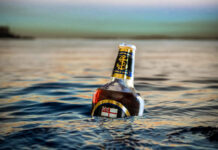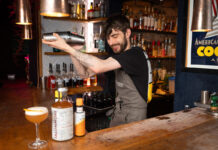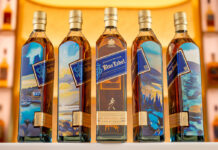Balanced range and a knowledgeable team are cornerstones of the category
Balancing larger, well-known brands with small, craft products could be one of the best ways to maximise beer sales in Scottish bars and pubs this year.
![Beer drinking Lifestyle 1[2]](https://sltn.tempurl.host/wp-content/uploads/2015/12/Beer-drinking-Lifestyle-12.jpg)
Brand owners reckon pub customers will continue to show interest in a wide range of different beer styles in 2016, and encouraged licensees to get both their range and staff knowledge up to the highest standards possible.
“Drinkers’ tastes and behaviour are changing at a pace we haven’t seen before, so the industry really needs to get ready for 2016,” said Hugo Mills, director of sales and operations at Molson Coors Scotland.
“If anyone thinks this is still about an old-fashioned battle of the beer brands, then they need to get smarter and see the bigger picture.
“It’s about understanding the way people now use pubs and the need for new flavours, and for bolder, richer drinks right across the range.
“Pubs won’t succeed unless they are savvy about today’s drinkers and how they will use pubs in the future.”
Finding the right balance between mainstream and craft products is essential, according to David Scott, director of brands and insight at Carlsberg UK.
“The key is to achieve the perfect combination of familiarity and diversity,” said Scott. “Stocking mainstream favourites alongside exciting world and craft products will help keep the offering fresh, while also appealing to a wide customer base.”
As customers broaden their taste in beer their knowledge of the category continues to improve, say firms.
And this puts more pressure than ever on licensees to make sure staff are knowledgeable about the beers they are selling.
Crawford Sinclair, director of sales for the UK and Ireland at Innis & Gunn, said the trade has an important role to play in raising the overall level of knowledge about the category.
“Consumers have come a long way with their beer knowledge over the last few years, but there is still a lot that can be done by trade and suppliers to improve this even more,” said Sinclair.
“Offering more education to staff, quality, interesting craft beer promotions, and events on a regular basis will only help to spread the word and increase consumer knowledge and interest about beer.”
Sinclair added that Innis & Gunn encourages consumers to try samples of different draught beers at its own Edinburgh bar, The Beer Kitchen, which gives staff the opportunity to explain the different flavours.
“This has been an eye opener for the beer novice as well as the more seasoned craft beer fans we see in the pub and it always sparks conversation and real engagement with the customer,” he said.
Well-informed bar staff can be a “key differentiator” for venues when trying to provide the best customer experience they can, according to Andy Maddock, managing director of Caledonian Brewery.
“Knowledge in beer is important, whether that be provenance, ingredients or brewing techniques as well as the flavour characteristics,” said Maddock.
“That is not only true in craft beer (both traditional and modern), where there is huge fragmentation, but also in gin/spirits and other categories where the consumer now wants to know the ‘story’ behind their brand.”
More informed staff recommendations can also have a direct impact on the bottom line, said Nicola Henderson, trade marketing manager at Tennent Caledonian Breweries.
“Investing in staff product knowledge leads to an enhanced customer experience as staff acquire the ability to make informed recommendations,” she said.
“Research from CGA has indicated that 80% of consumers are willing to purchase based on bartender recommendation, but that fewer than one in two have actually done this, so bartender education presents a substantial opportunity.”



















